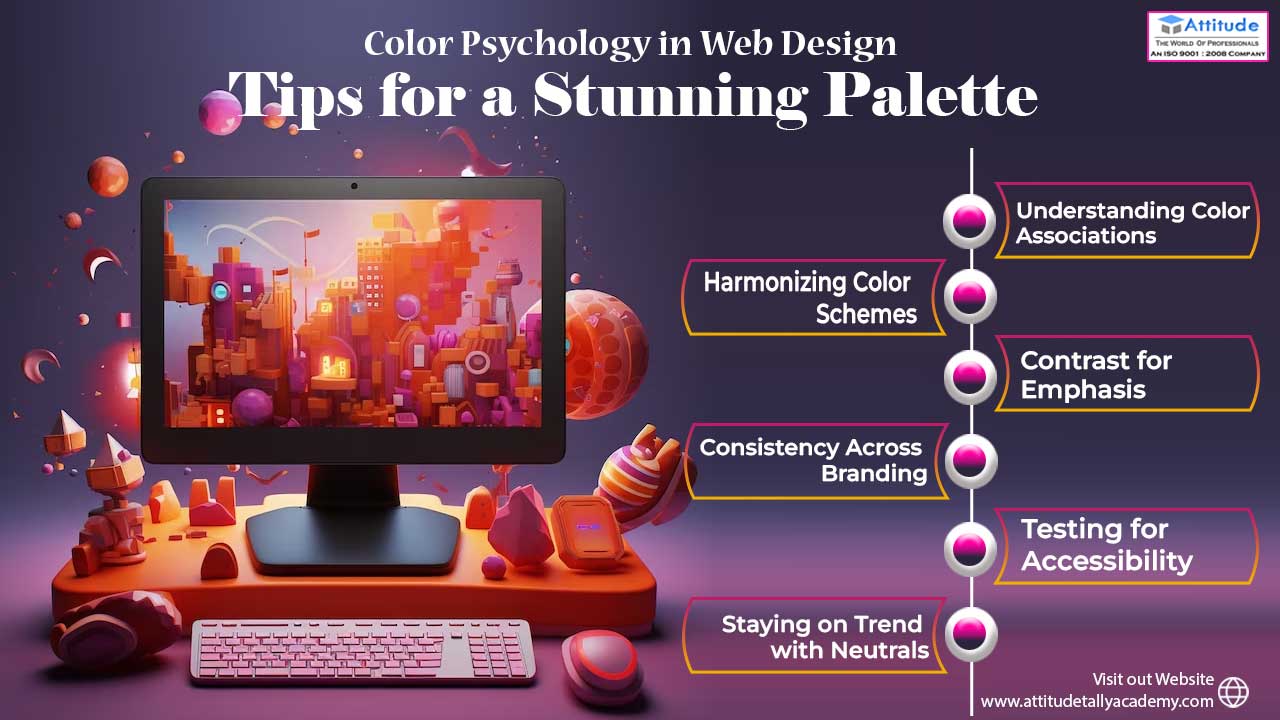Introduction
In the vast landscape of web design, aesthetics play a pivotal role in captivating audiences and fostering engagement. Among the myriad elements that shape the visual appeal of a website, color stands out as a powerful tool for eliciting emotions, conveying messages, and enhancing user experience. Harnessing the principles of color psychology can elevate your website’s design from ordinary to extraordinary, creating a captivating digital space that resonates with your audience. In this article, we delve into the art of designing with color psychology and Color Contrast Techniques, exploring key tips for crafting a stunning palette that captivates and inspires.
Understanding Color Associations
Color psychology delves into the emotional and psychological impact of different hues on human behavior. Each color evokes distinct associations and emotions, making it crucial to choose wisely when designing your website. For instance, blue exudes trust and professionalism, making it ideal for corporate websites, while red elicits excitement and urgency, suitable for e-commerce platforms. By understanding these associations, you can strategically incorporate colors that align with your brand identity and resonate with your target audience.
Harmonizing Color Schemes
Harmonizing color schemes is essential for creating a visually pleasing website that maintains coherence and balance. Whether employing complementary, analogous, or monochromatic palettes, ensure that colors complement rather than clash with each other. This not only enhances the aesthetic appeal but also facilitates seamless navigation and readability, contributing to a positive user experience.
Contrast for Emphasis
Utilizing contrast effectively can draw attention to key elements on your website, such as call-to-action buttons or important messages. By juxtaposing light and dark shades, you can create visual hierarchy and guide users’ focus towards essential content. However, it’s essential to strike a balance and avoid excessive contrast, which can strain the eyes and detract from usability.
Consistency Across Branding
Consistency is paramount in establishing a cohesive brand identity across all touchpoints, including your website. Ensure that your color palette aligns with your brand’s logo, typography, and overall aesthetic to reinforce brand recognition and foster trust among visitors. Consistent branding instills confidence and conveys professionalism, enhancing the overall user experience.
Testing for Accessibility
Accessibility is a fundamental aspect of web design, and color plays a significant role in ensuring inclusivity for all users, including those with visual impairments. Conduct thorough testing to ensure that your color choices meet accessibility standards, such as providing sufficient color contrast for text readability and incorporating alternative color schemes for users with color vision deficiencies. Prioritizing accessibility not only expands your audience reach but also demonstrates a commitment to inclusivity and user-centric design.
Staying on Trend with Neutrals
While vibrant hues can infuse energy and personality into your website, incorporating neutrals such as whites, grays, and muted tones can provide balance and sophistication. Neutral backgrounds allow colorful elements to pop while maintaining a clean and modern aesthetic. Additionally, neutrals are timeless and versatile, ensuring that your website remains visually appealing and relevant amidst evolving design trends.
In conclusion,
Designing with color psychology is a nuanced yet powerful approach to creating compelling and user-friendly websites. By understanding color associations, harmonizing color schemes, leveraging contrast, maintaining consistency across branding, testing for accessibility, and incorporating neutrals, you can craft a stunning palette that captivates your audience and elevates your online presence. Embrace the art of color psychology in your web design endeavors, and watch as your website becomes a beacon of inspiration and engagement
Suggested link: – Graphic Design Digital Marketing Video Editing




